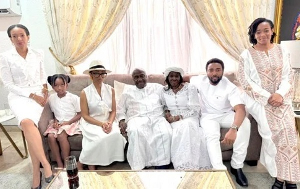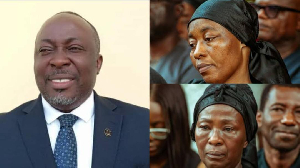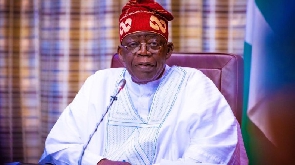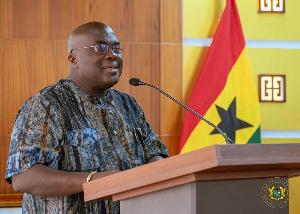The government of Ghana has decided that henceforth, English language should be used as the only medium of instruction at all levels of education.
It has also directed that every Ghanaian child must study one local language from primary one up to the senior secondary school(SSS). The Minister of Education, Professor Christopher Ameyaw-Akumfi, outlined the new English Language Policy for pupils in an interview in Accra yesterday. He said the new policy has become necessary because of the need to improve the pupils’ level of comprehension of the English language, which is used in examinations at all cycles of education (Daily Graphic Report, Accra, May 17, 2002)
As would be expected, this new English Language Policy has drawn a hated debate among many Ghanaians and even sharp criticisms from a section of the academia in Ghana. For example, the lecturers of the Department of Linguistics of the University of Ghana have criticized the government’s new policy as hasty and disappointing decision. The lecturers contend that the government had already set up a national committee to review the country’s educational system and if anything at all, the government should have waited for the committee to submit its report for consideration before arriving at the “controversial” policy.
Was there the urgent need for this policy to be introduced? How will the implementation of the policy affect teaching and learning in the classroom? Especially, in rural areas like Kotwea and Fankyenbra? Are there any political undertones for this new policy? Who really benefit most from the new policy? These are some of the pertinent questions that border on the new policy.
The Urgency:
The Minister of Education said in an interview that the new policy has become necessary because of the need to improve the comprehension of the English language, which is used in examinations at all cycles of education in Ghana.
The minister expressed optimism that with the new policy, the results of schoolchildren will improve considerably.
Professor Ameyaw-Akumfi said currently, pupils in the lower primary are instructed in the vernacular of the area where they attend school. He said Cabinet took the decision to modify the old language policy in schools because it wanted to ensure that children study the Ghanaian and English languages concurrently.
What was the old policy? The former policy stipulated that from Primary One to Three, the medium of instruction should be a Ghanaian language, while the English Language is the medium of instruction from Upper Primary (Junior School) and above.
Debunking the reasons given by the Minister in support of the new policy some Ghanaians have argued wildly that the new policy constitutes neo-colonization of education in Ghana. I beg to differ from this argument. As long as Ghana has NO one local language that could become the langur franca for the country, and for the fact that the English Language is widely used throughout the world the use of it in schools in Ghana does not imply the “colonization” of education in the country.
It is true that the level of comprehension of the English Language is low in schools. However, setting aside the use of vernacular as a medium of instruction at the early stage of primary education will not help many of children whose first contact with the English Language is only at school. I’m talking here about the majority of urban and rural children whose parents DO NOT speak the English Language to them at home. It is obvious that those children in the cities or from elite homes stand to benefit more from the new policy.
Language is a dynamic tool for development and the six-year-old child who goes to school should not be denied instruction in his/her first language if we expect him/her to develop his/her language skills properly.
The Beef:
The major contributing factor to low level of comprehension of English Language is how the English Language is taught in our schools. Departure from the methodology of phonics and grammar as it was in the 50s and 60s has caused children to miss the ABC of the English Language.
Also, the teaching of the English Language by incompetent teachers some of whom cannot even speak a sentence in the language is another factor. This brings to attention the preparation of teachers for our schools. Since the teaching profession, over the years, has not been given its due share of the national cake, the profession has found it very difficult to attract the top materials into it. Besides teachers in training don’t get the best due to lack of teaching aids and other essential training resources.
I therefore call on the government not to window-dress the problem of falling standards in the English Language in our schools. The problem must be tackled at its root causes. No wonder the Parliament is already divided on the new English Language policy in our schools. The debate continues.
Teacher, Brookview Middle School, Toronto-Canada

Views expressed by the author(s) do not necessarily reflect those of Ghanaweb.














